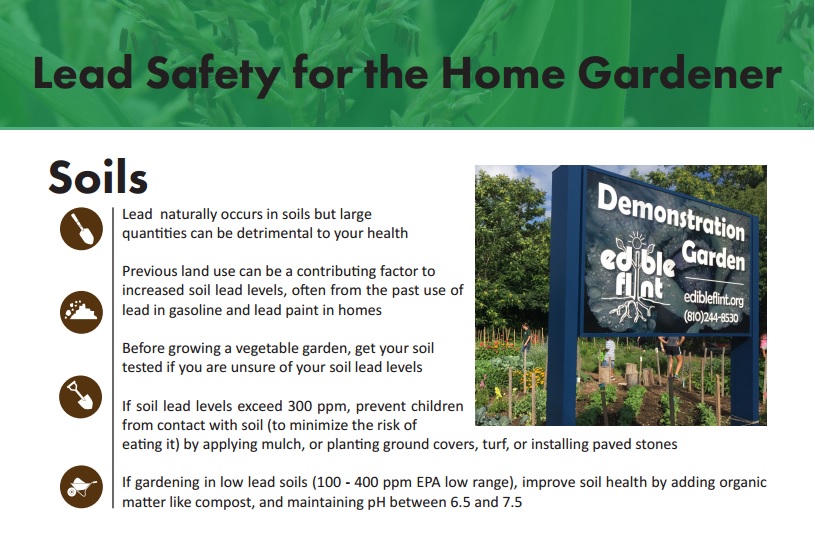How to Avoid Lead Exposure While Gardening this Summer
MSU Extension educator says lead shouldn’t stop you from planting your veggies


There’s a lot in the news these days about ways people are exposed to lead, especially since the water crisis in Flint came to light. And just this week there are reports of numerous Detroit school buildings with high lead levels in drinking water.
But it’s not just tap water lines that sometimes contain lead. It’s also the paint on the walls of older homes and the soil in yards.
With people getting ready to plant their summer gardens, what can homeowners do to make sure they’re not exposing themselves to lead when they plant and consume their tomatoes and cucumbers?
Experts say it’s smart to test your soil lead levels.
“Before we plant in any soil, especially for food gardens, we want to know how much lead is there,” says Teresa McLean, a Michigan State University Extension educator specializing in community food systems, located in Flint. She also supports the edible flint urban agriculture initiative.
But McLean says with proper urban soil management practices, the benefits of gardening – including improved nutrition and food security – outweigh the potential risks of elevated lead levels in soil.
“Plants don’t readily take up lead,” she said, noting that soil lead levels have to be very high to pose a risk.
To hear more from McLean’s discussion about gardening with lead contaminated soil, click the audio link above.
